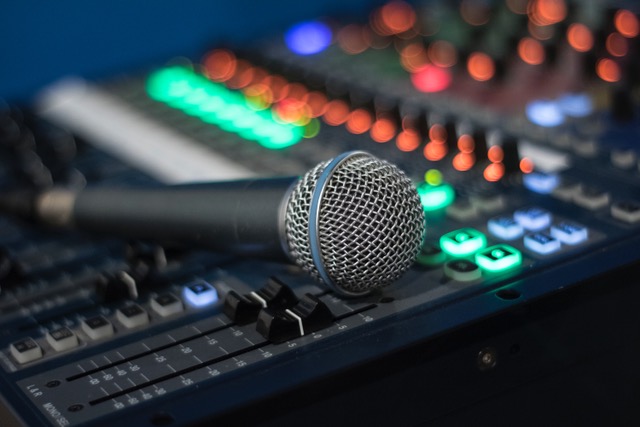Be it a concert, movie premiere, business conference, or graduation exercise, one may hardly think about it, but there is an orchestra of audio equipment in place, cooperating in a well-designed symphony to deliver that experience. On major events, sound engineers make sure everything goes as planned, and for minor events, it would be just one or two technicians managing the gear.
Tiny to enormous, no show goes right without A-level audio equipment. Crackling speakers and cutting-out microphones and faulty monitors can ruin even the best-planned event. No matter the brilliance of the sound engineer, bad equipment brings everything down. Which means having the right gear is critical-and more often than not, renting the right equipment is the solution. Before we dive deep into the details of essential audio equipment, let’s discuss why great sound could either make or break an event.
The Impact of Audio Quality
Sometimes, the sound at an event is so good you barely notice it. Other times, it’s so bad you can’t help but cringe. The reality is that if you’re an event organizer, the goal is for the audio to blend seamlessly into the background, enhancing the experience without drawing attention to itself. There is expected sound quality by attendees, especially if they paid to experience it-concerts are a good example. In these instances, “no news is good news.”
But why is audio quality so important for events that aren’t concerts or music-centric? It’s simple: communication. From the keynote presentation in the main conference room to breakout sessions in smaller rooms, sound is how information flows from person to person. If people can’t hear a speaker or if the sound cuts in and out, there is a big problem. Clear, crisp audio, on the other hand, helps keep things professional and your message heard.
Now imagine some kind of graduation ceremony where one doesn’t hear the names of the students receiving their diplomas, or going to a movie premiere with glitches in the sound. Such failures change memorable moments into frustrating experiences. That’s why picking up the right audio equipment for every kind of event matters.
Choosing the Right Audio Equipment
Choosing the right audio equipment does not always mean choosing the latest or most expensive one. It’s all about matching up the event requirements with the appropriate equipment. Here are some of the most important pieces of audio equipment you need to consider for your next event:
Microphones
First, consider your event setup. Will your speakers be standing at a podium or moving around? Is the stage set up for roundtable discussions or interactive Q&A? The setup will help you determine which type of microphones to go for.
- Wired Microphones: If the speaker is going to be in one spot, then a wired mic is your best bet. The Shure SM-58 is a classic, reliable choice used by performers all over the world.
- Wireless Handheld Microphones: Useful for events with audience participation or a mobile speaker, wireless microphones are a good option. The range includes great options from both Shure and Sennheiser.
- Lavalier Microphones: If you have a speaker who needs to use their hands or will be walking, lavalier-lapel microphones offer fantastic freedom. These secure onto your clothing via a small transmitter.
And don’t forget to factor in stands and cables when looking at microphone rentals.
PA Systems
If your event is at a small venue without an in-house sound system, you would have to bring along your portable PA system. A self-contained PA system comes with a stereo amplifier inbuilt with mixer and speakers. It is almost plug-and-play since you simply connect the mic and plug it in and you’re ready.
For larger venues, if the house PA system lacks sufficient power, you can rent additional speakers. Brands like Roland offer user-friendly systems that deliver big sound in compact packages.
Soundboard and Mixer
For the venues with a PA system in place, you will want to have a soundboard and mixer for controlling the audio. These are so much more complex than any of the standalone PA systems that, unless you are an audio professional, hiring a technician would be smart.
A soundboard takes multiple audio inputs (mics, music, etc.) and balances the sound to ensure an even, pleasant output. Avid and Yamaha are industry leaders when it comes to reliable soundboards and mixers. If the venue lacks stage monitors (which allow presenters to hear themselves), be sure to add those to your rental list.
Processors and Effects
This would include adding processors and effects modules for those who want to enhance this aspect of the sound further. Processors ultimately bring in the overall sound quality by providing compression and equalization, making it richer and fuller. Effects modules let you add in reverb, echo, delay, or other enhancements in an attempt to make things more interesting to your audience.
Not every event needs these, but for performances and special presentations, they can go a long way. With industry-leading brands such as Lexicon and Yamaha, it’s hard not to find some quality processors and effects to elevate your event.
Conclusion
Audio engineering can be an awfully complex and detailed field, but most of the basics can make quite a difference in the planning process for any event. Whether it is a large conference or a small performance, one needs the right equipment to get down to business. Most venues provide basic setups for anything, but for many events, this does not provide everything that is needed, and thus renting extra gear may become necessary.
From guaranteed audio rentals in Los Angeles to everything you may need-from microphones and PA systems down to every last little thing-On-Stage Rentals is the source you can rely on. Let their expert support allow you to provide an impeccable audio experience that will leave your attendees impressed and your event unforgettable.

